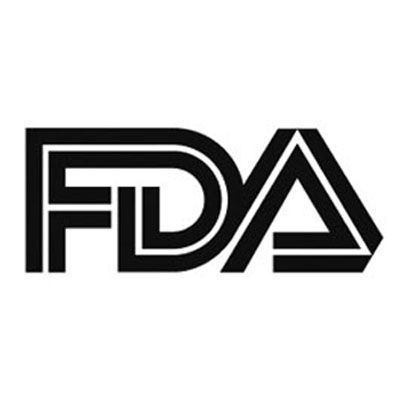FDA Approves Adjuvant Pembrolizumab for Renal Cell Carcinoma
The FDA has approved adjuvant pembrolizumab for the treatment of renal cell carcinoma with an intermediate-high or high risk of recurrence following nephrectomy or following nephrectomy and resection of metastatic lesions.

The FDA has approved adjuvant pembrolizumab (Keytruda) for the treatment of renal cell carcinoma (RCC) with an intermediate-high or high risk of recurrence following nephrectomy or following nephrectomy and resection of metastatic lesions, according to a press release by Merck.
“Despite decades of research, limited adjuvant treatment options have been available for earlier-stage renal cell carcinoma patients who are often at risk for recurrence. In KEYNOTE-564, pembrolizumab reduced the risk of disease recurrence or death by 32%, providing a promising new treatment option for certain patients at intermediate-high or high risk of recurrence,” said Toni K. Choueiri, MD, director, Lank Center for Genitourinary Oncology, Dana-Farber Cancer Institute, and professor of medicine, Harvard Medical School. “With this FDA approval, pembrolizumab may address a critical unmet treatment need and has the potential to become a new standard of care in the adjuvant setting for appropriately selected patients.”
The approval is based on results from the phase 3, randomized, parallel assignment, quadruple-blind, KEYNOTE-564 study. The study has an actual enrollment of 994 participants and an estimated study completion date of December 2025. The primary end point is disease-free survival (DFS). Secondary end points include overall survival (OS), adverse events (AEs), disease recurrence-specific survival, event free survival, quality of life, and symptoms.
During the study, patients were randomized 1:1 into 2 arms. During the experimental arm (n = 496), patients received 200mg of pembrolizumab intravenously on day 1 of each 3-week cycles for up to 17 cycles. In the control arm (n = 498), patients received a placebo on the same schedule.
At the data-cutoff of 24.1 moths, the DFS of the experimental arm was 77.3% compared with 68.1% in placebo arm (hazard ratio for recurrence or death, 0.68; 95% confidence interval [CI], 0.53 to 0.87; two-sided P =.002. The 12-month DFS rate was 85.7% in the experimental arm compared with 76.2% in the placebo arm. Pembrolizumab was associated with a 32% reduction in the risk of disease recurrence or death compared with the placebo. The 12-month OS was 98.6% in the control arm and 98% with the placebo. The 24-month OS was 96.6% in the control arm versus 93.5% in the experimental arm.
Treatment-related AEs (TRAEs) occurred in 79.1% of patients in the control arm versus 53.4% in the placebo arm. Grade 3 to 5 TRAEs occurred in 18.9% of patients in the experimental arm versus 1.2% in the placebo arm. There were no treatment-related deaths in either arm. The safety data of pembrolizumab is consistent with previous studies. According to the press release, immune-related adverse events can occur with pembrolizumab and may be fatal.
In order to participate in the study, patients must have confirmed RCC, have received no prior systemic therapy for advanced RCC, an ECOG score of 0 or 1, and adequate organ function. Patients who have had major surgery, prior radiotherapy for RCC, pre-existing brain or bone metastatic lesions, an active autoimmune disease, an active infection, or had prior solid organ transplant are not eligible to participate.
“Keytruda is foundational for the treatment of patients with certain advanced cancers, and this approval marks the fourth indication for Keytruda in earlier stages of cancer,” said Scot Ebbinghaus, MD, vice president, clinical research, Merck Research Laboratories. “Keytruda is now the first immunotherapy approved for the adjuvant treatment of certain patients with renal cell carcinoma. This milestone is a testament to our commitment to help more people living with cancer.”
References:
1. FDA approves Merck’s Keytruda® (pembrolizumab) as adjuvant therapy for certain patients with renal cell carcinoma (RCC) following surgery. New release. Merck. November 18, 2021. Accessed November 18, 2021. https://bwnews.pr/3x2AbEz
2. Choueiri TK, Tomczak P, Park SH, et al. Pembrolizumab vs placebo as post-nephrectomy adjuvant therapy for patients with renal cell carcinoma: randomized, double-blind, phase 3 KEYNOTE-564 study. J Clin Oncol. 2021;39(suppl 15):LBA5.
Enhancing Precision in Immunotherapy: CD8 PET-Avidity in RCC
March 1st 2024In this episode of Emerging Experts, Peter Zang, MD, highlights research on baseline CD8 lymph node avidity with 89-Zr-crefmirlimab for the treatment of patients with metastatic renal cell carcinoma and response to immunotherapy.
Listen
Beyond the First-Line: Economides on Advancing Therapies in RCC
February 1st 2024In our 4th episode of Emerging Experts, Minas P. Economides, MD, unveils the challenges and opportunities for renal cell carcinoma treatment, focusing on the lack of therapies available in the second-line setting.
Listen